Combining carbs and proteins in the same meal has been a topic of debate among nutritionists for many years. Some claim that it is beneficial for overall health, while others argue that it can cause digestive issues and even lead to weight gain. The truth is, there is no one-size-fits-all answer to this question, as the effects of combining carbs and proteins can vary depending on a person’s individual needs and health goals.
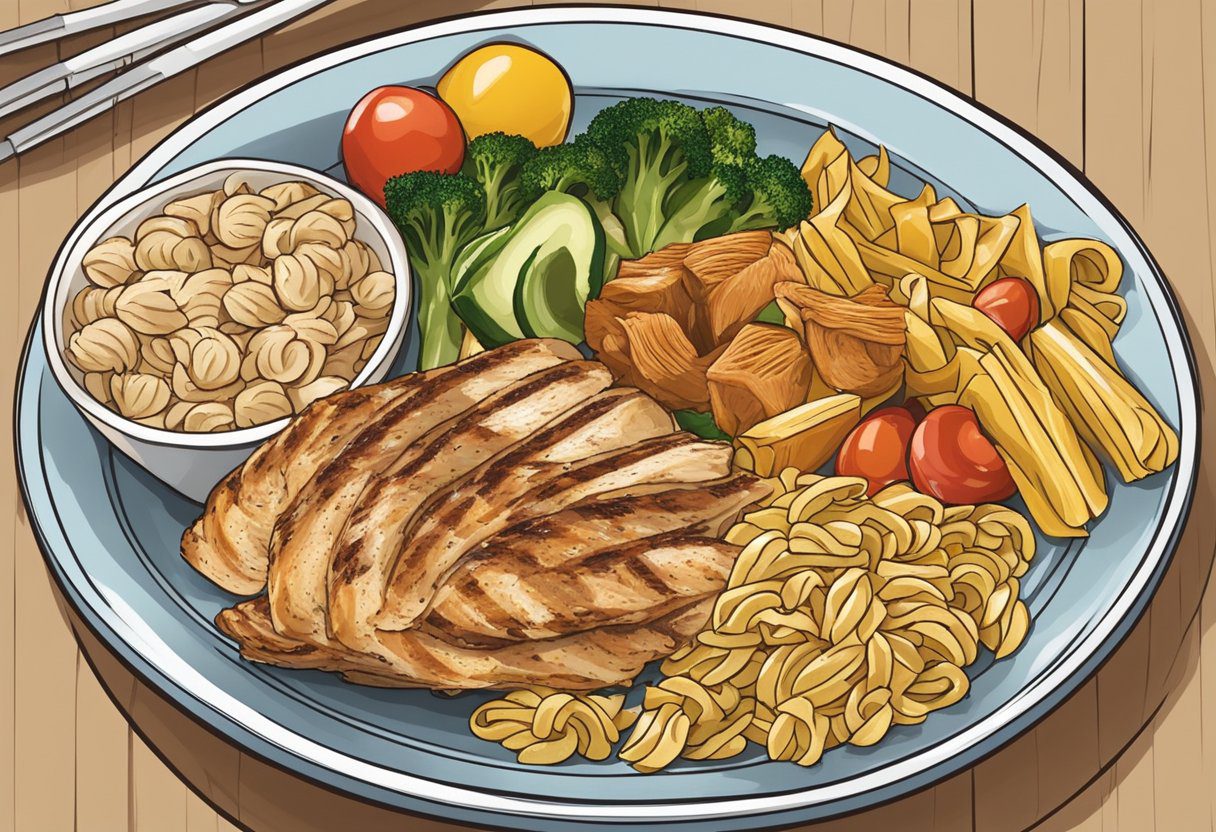
Nutritional Basics: Carbohydrates and proteins are both essential macronutrients that the body needs for energy and growth. Carbs are the body’s primary source of fuel, while proteins are the building blocks of muscles, bones, and other tissues. Both are important for maintaining a healthy, balanced diet, but the way they are consumed can have different effects on the body.
Digestive Process: The digestive process for carbs and proteins is different, and some experts believe that combining them in the same meal can interfere with proper digestion. According to some studies, eating a high-carb meal with protein can slow down the digestion of both nutrients, leading to bloating, gas, and other digestive issues. However, other research suggests that combining carbs and proteins can actually enhance digestion and absorption of nutrients.
Key Takeaways
- Combining carbs and proteins can have different effects on the body depending on the individual’s needs and health goals.
- Carbs and proteins are both essential macronutrients, but the way they are consumed can affect the digestive process.
- While some studies suggest that combining carbs and proteins can cause digestive issues, other research suggests that it can enhance nutrient absorption.
Nutritional Basics
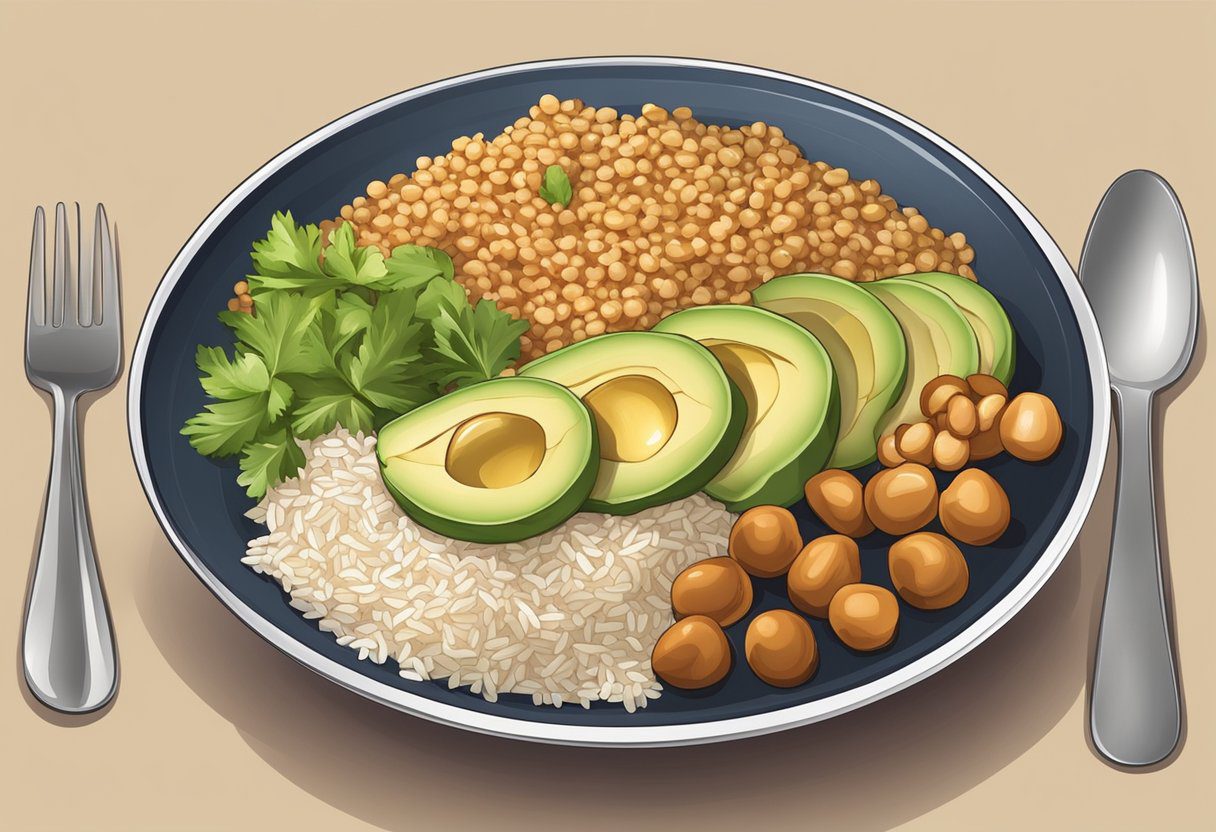
Macronutrients and Their Roles
Macronutrients are the nutrients that are required in large amounts by the human body. The three main macronutrients are carbohydrates, proteins, and fats. Each macronutrient has a specific role in the body.
Proteins
Proteins are made up of amino acids and are essential for building and repairing tissues in the body. They are also important for making enzymes, hormones, and other molecules that are involved in various metabolic processes.
Carbohydrates
Carbohydrates are the primary source of energy for the body. They are broken down into glucose, which is used by the body for energy. Carbohydrates also play a role in the structure of cells and tissues.
Fats
Fats are important for the absorption of certain vitamins and minerals, and they provide the body with a source of energy. They are also involved in the production of hormones and other molecules that are important for various metabolic processes.
Understanding Food Combining
Food combining is the practice of eating certain foods together in order to improve digestion and nutrient absorption. One common practice is to avoid combining carbohydrates and proteins in the same meal.
The theory behind this practice is that carbohydrates and proteins require different digestive enzymes and different pH levels in the stomach in order to be properly digested. Eating them together may lead to digestive problems, such as bloating and gas.
However, there is limited scientific evidence to support the idea that food combining has any significant impact on digestion or nutrient absorption. In fact, some studies have found that combining carbohydrates and proteins may actually improve blood sugar control and increase satiety, leading to better weight management.
Overall, the importance of food combining is still a topic of debate in the nutrition community. It is important to focus on consuming a balanced diet that includes a variety of foods from all the food groups, rather than worrying about specific food combinations.
Digestive Process
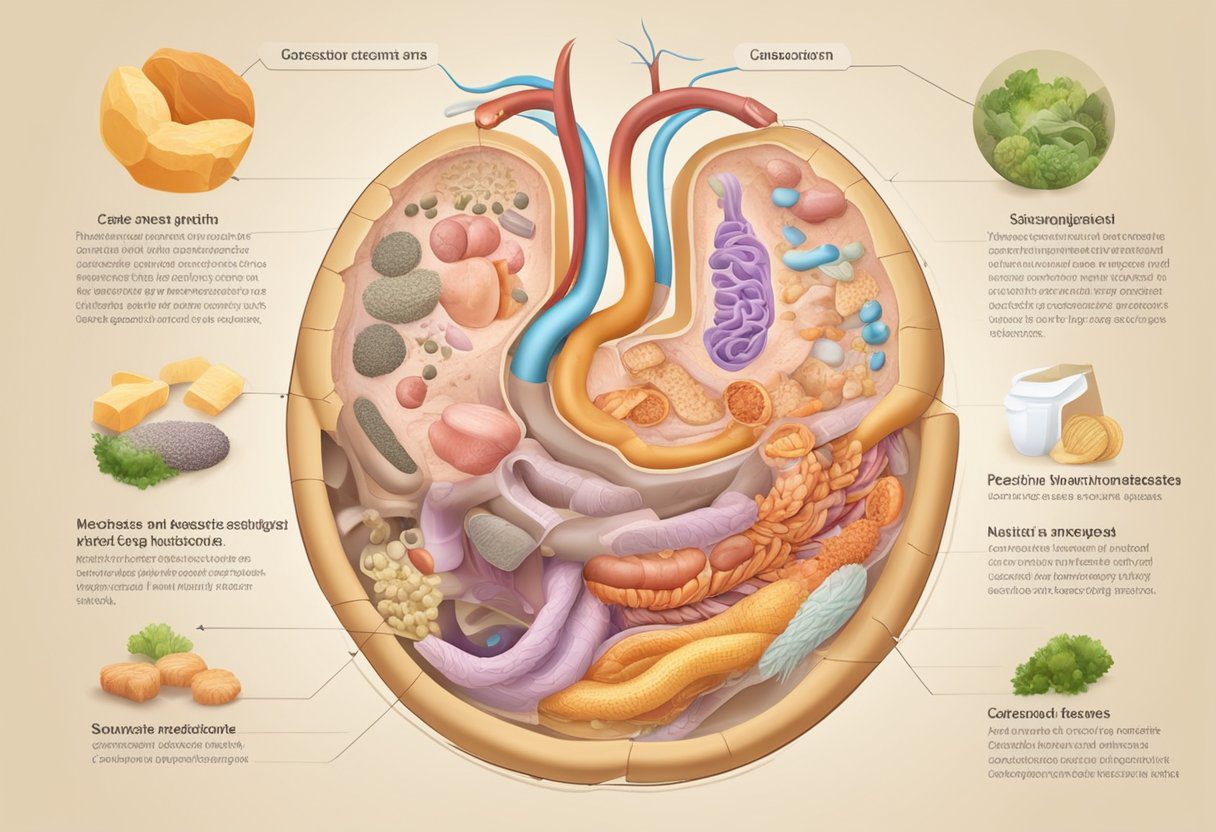
Stages of Digestion
Digestion is the process by which food is broken down into smaller molecules that can be absorbed by the body. The digestive system is a complex network of organs and tissues that work together to accomplish this task. The digestive process can be divided into four stages:
- Ingestion: the process of taking food into the mouth.
- Digestion: the process of breaking down food into smaller molecules.
- Absorption: the process of absorbing the smaller molecules into the bloodstream.
- Elimination: the process of removing waste products from the body.
Enzymatic Breakdown of Foods
Enzymes are proteins that catalyze the breakdown of larger molecules into smaller ones. In the digestive system, enzymes play a crucial role in breaking down food into smaller molecules that can be absorbed by the body. Different enzymes are responsible for breaking down different types of food.
Carbohydrates, such as starch and sugar, are broken down by enzymes called amylases. Amylases are produced in the saliva and the pancreas. Starch is first broken down into smaller molecules called maltose by the amylase in saliva. The amylase in the pancreas then breaks down the maltose into glucose, which can be absorbed by the body.
Proteins are broken down by enzymes called proteases. Proteases are produced in the stomach and the pancreas. In the stomach, proteins are broken down into smaller molecules called peptides by the enzyme pepsin. The proteases in the pancreas then break down the peptides into amino acids, which can be absorbed by the body.
Fats are broken down by enzymes called lipases. Lipases are produced in the pancreas. Fats are first broken down into smaller molecules called fatty acids and glycerol by the lipase in the pancreas. These molecules are then absorbed by the body.
The pH levels in the digestive system also play an important role in the enzymatic breakdown of foods. The stomach has a low pH level, which helps to activate the enzymes that break down proteins. The small intestine has a higher pH level, which helps to activate the enzymes that break down carbohydrates and fats.
Once the food has been broken down into smaller molecules, it is absorbed by the body through the walls of the small intestine. The remaining waste products then move into the large intestine, where water is absorbed and the waste products are eliminated from the body through the rectum and anus.
Health Implications
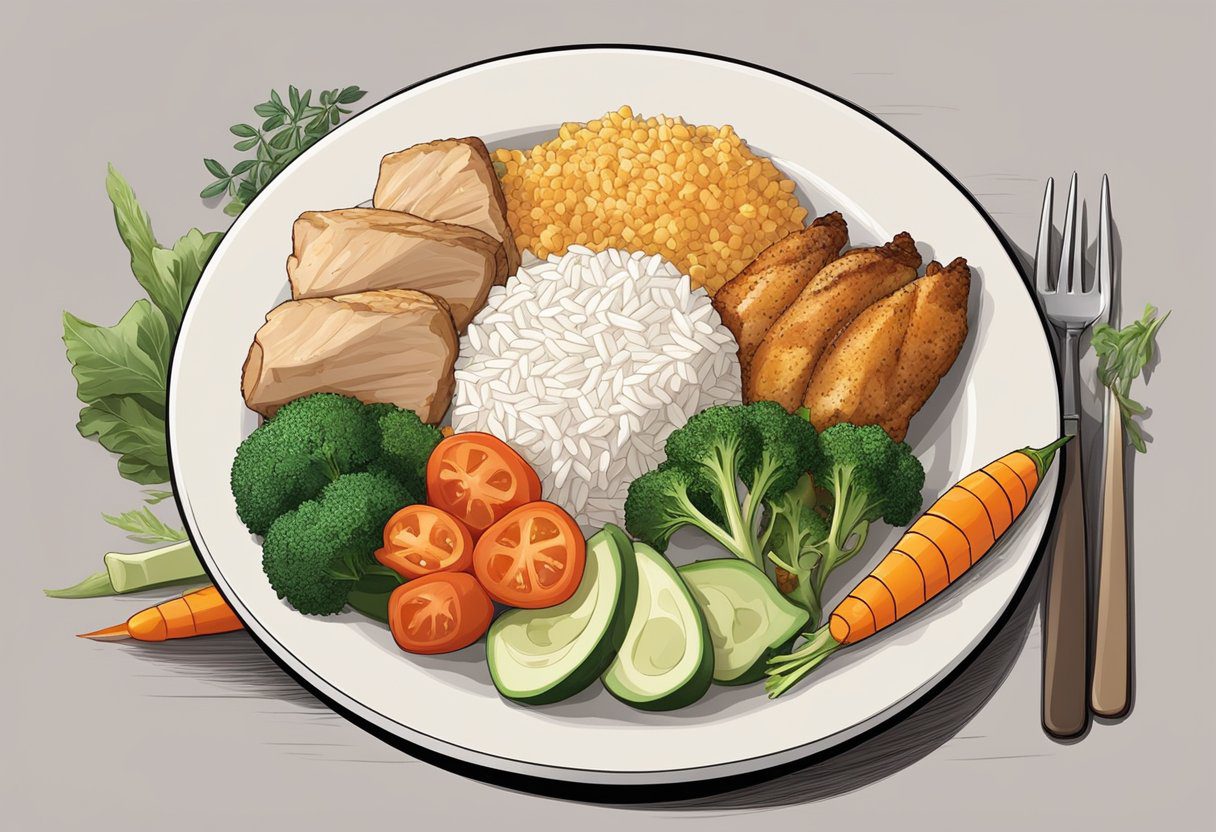
Combining carbohydrates and proteins in the same meal can have various health implications. Here are some of the effects that have been observed:
Impact on Blood Sugar
When carbohydrates are consumed, they are broken down into glucose, which is then absorbed into the bloodstream. This causes a rise in blood sugar levels. However, when protein is consumed along with carbohydrates, it can slow down the absorption of glucose into the bloodstream. This is because protein takes longer to digest than carbohydrates. As a result, the rise in blood sugar levels is not as rapid, and the body is better able to manage blood sugar levels.
Weight Management
Consuming a combination of carbohydrates and proteins in the same meal can have an impact on weight management. According to a source, protein can help increase feelings of fullness and satiety, which can lead to reduced calorie intake. Additionally, consuming protein along with carbohydrates can help prevent a rapid rise in blood sugar levels, which can lead to overeating.
Disease Prevention
According to a source, food combining diets believe that improper food combinations can lead to disease, toxin buildup, and digestive issues. However, there is limited scientific evidence to support these claims. Nonetheless, consuming a combination of carbohydrates and proteins in the same meal can have a positive impact on overall health.
Overall, combining carbohydrates and proteins in the same meal can have various health implications. It can impact blood sugar levels, weight management, and disease prevention. However, it is important to note that the effects may vary from person to person. It is best to consult with a healthcare provider or a registered dietitian to determine the best dietary approach for individual needs.
Scientific Evidence
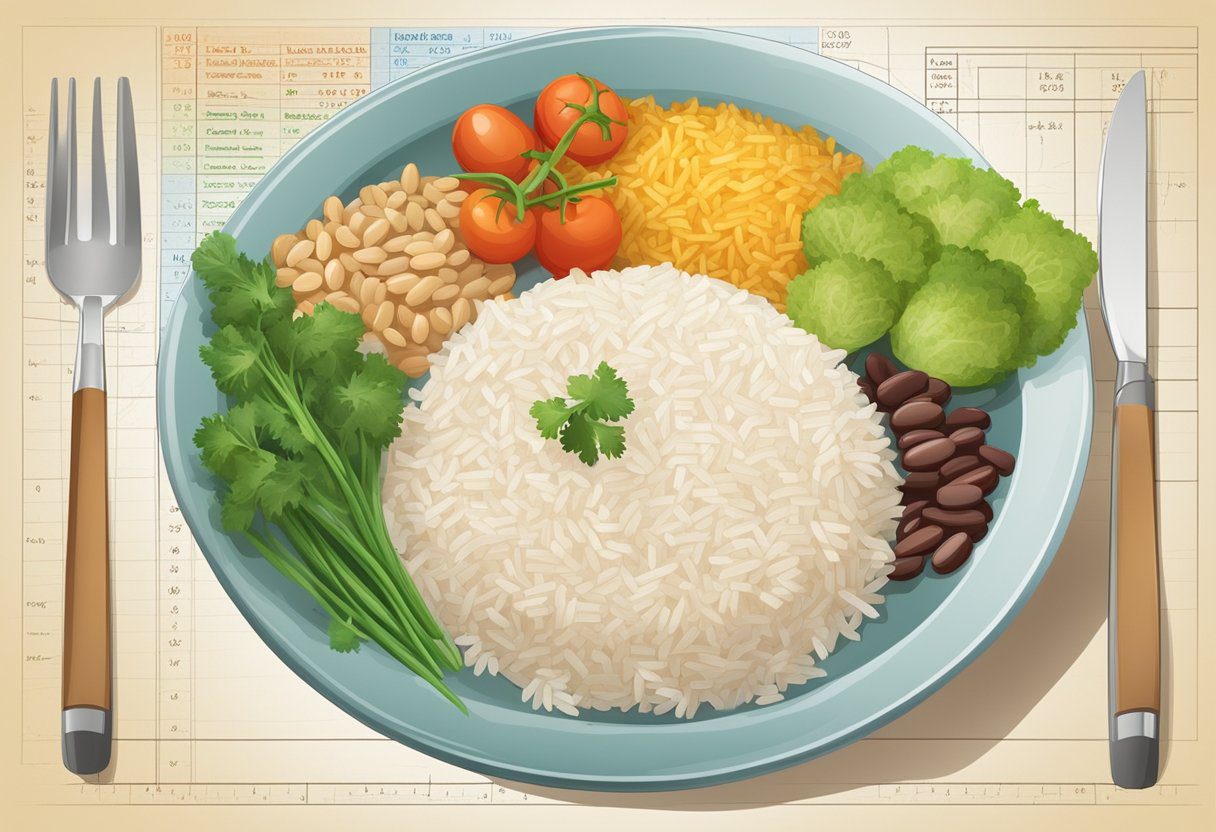
Studies on Food Combining
Several studies have investigated the effects of combining carbs and proteins in the same meal. One study published in the “American Journal of Clinical Nutrition” found that consuming a mixed meal of carbohydrates and proteins did not affect the absorption of the individual nutrients in the meal [1]. Another study published in “Nutrition Research” found that consuming a high-protein meal after a high-carbohydrate meal did not affect blood sugar levels [2].
However, a study published in “The Journal of Nutrition” found that consuming a high-carbohydrate meal after a high-protein meal resulted in lower blood sugar levels compared to consuming the high-carbohydrate meal alone [3]. Another study published in “Metabolism” found that consuming a high-carbohydrate meal after a high-protein meal resulted in decreased fat oxidation [4].
Expert Opinions and Dietetics
Registered dietitians and nutrition experts have varying opinions on food combining. Some experts recommend consuming carbohydrates and proteins separately to optimize digestion and nutrient absorption. They argue that consuming both macronutrients together can lead to slowed digestion and decreased absorption of nutrients.
However, other experts suggest that there is no scientific evidence to support the idea that combining carbohydrates and proteins in the same meal is harmful. They argue that the body is capable of digesting and absorbing both macronutrients simultaneously.
In summary, there is conflicting scientific evidence on the effects of combining carbs and proteins in the same meal. While some studies suggest that combining carbs and proteins may lead to decreased absorption of nutrients or decreased fat oxidation, other studies have found no significant effects. Registered dietitians and nutrition experts have varying opinions on the topic, with some recommending separating carbohydrates and proteins and others seeing no harm in combining them.
[1] https://academic.oup.com/ajcn/article/90/5/1453/4598075 [2] https://www.sciencedirect.com/science/article/pii/S0271531708001484 [3] https://academic.oup.com/jn/article/141/11/2051/4630558 [4] https://www.sciencedirect.com/science/article/pii/S0026049515000939
Practical Guidelines
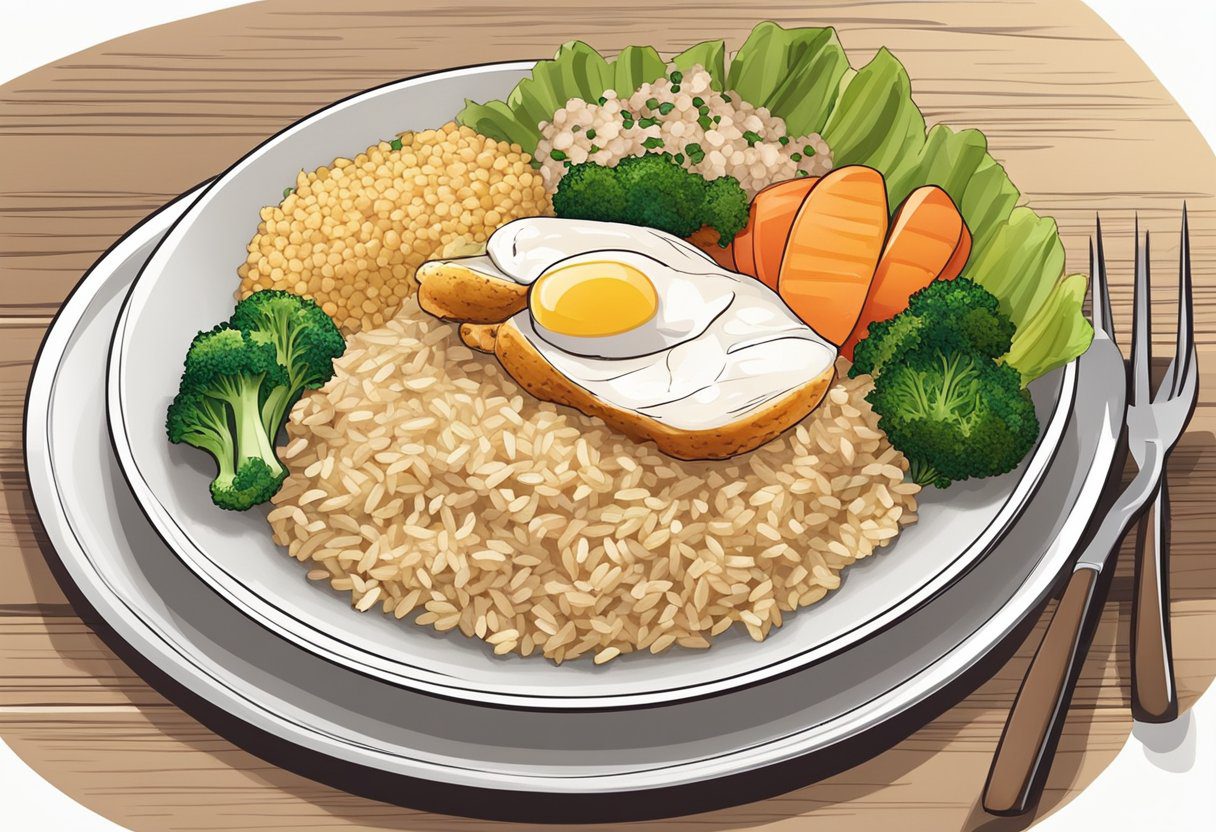
Creating a Balanced Meal
When it comes to creating a balanced meal that includes both carbohydrates and proteins, it’s important to keep in mind the principles of a balanced diet. This means incorporating whole foods that are nutrient-dense and provide a variety of vitamins and minerals.
Aim to include a source of protein, such as meat, dairy, nuts, or seeds, alongside a source of carbohydrates, such as vegetables or fruits. For example, a meal could consist of grilled chicken with roasted sweet potatoes and a side salad, or a veggie stir-fry with tofu and brown rice.
It’s also important to pay attention to portion sizes and overall calorie intake. While combining carbohydrates and proteins can be beneficial, consuming too many calories can lead to weight gain. Be mindful of your portions and aim to include a variety of nutrient-dense foods in your meals.
Food Pairing Recommendations
While there is no one-size-fits-all approach to food combining, there are some general recommendations that can help support optimal digestion and nutrient absorption.
Firstly, it’s recommended to avoid combining high-protein foods with high-carbohydrate foods in the same meal. This is because proteins require an acidic environment to be properly digested, while carbohydrates require a more alkaline environment. Combining the two can lead to poor digestion and nutrient absorption.
Instead, aim to pair proteins with non-starchy vegetables, such as leafy greens or broccoli. This can help create a more balanced meal and support optimal digestion.
Additionally, it’s recommended to avoid combining fruits with other foods, as they are best digested on their own. If you do choose to include fruits in a meal, aim to eat them first or wait at least 30 minutes after a meal before consuming them.
Overall, incorporating a variety of whole foods and paying attention to portion sizes can help support a balanced diet that includes both carbohydrates and proteins. While there are some general recommendations for food combining, it’s important to listen to your body and find what works best for you.
Potential Challenges
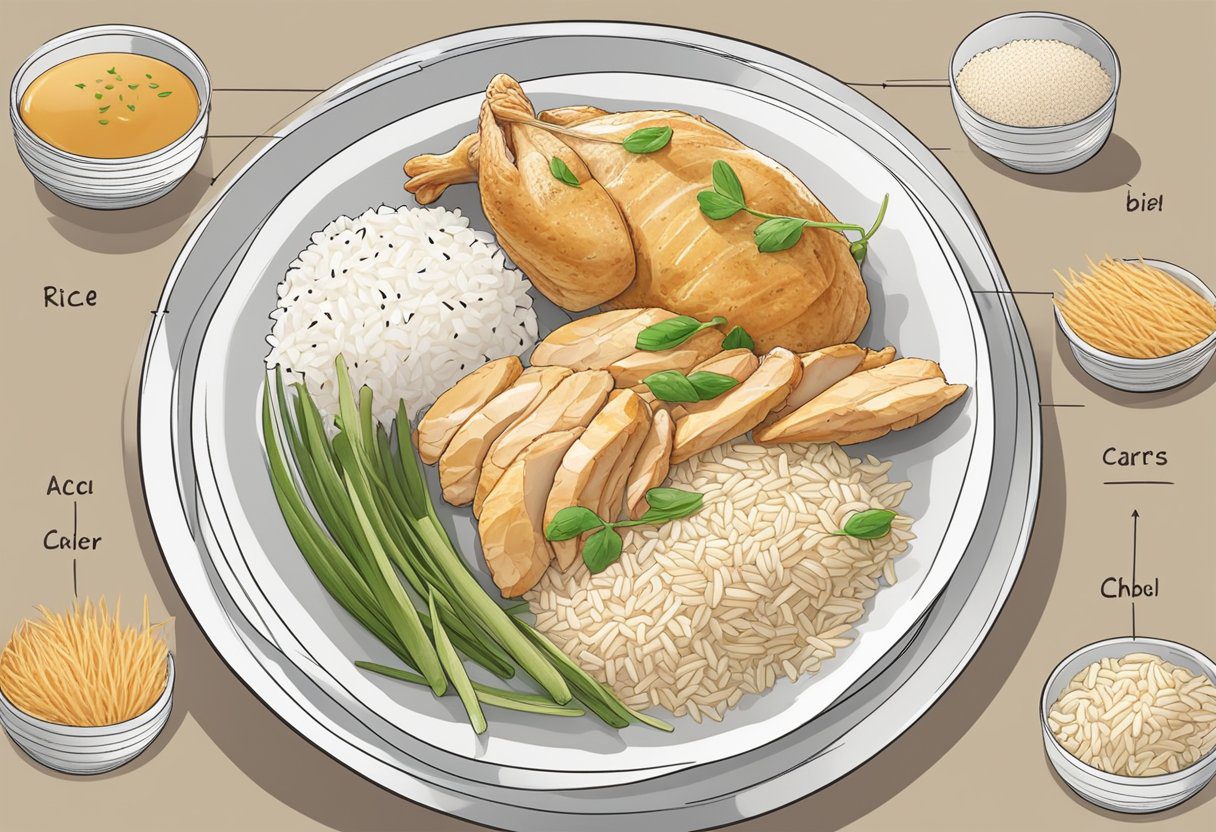
When it comes to combining carbs and proteins in the same meal, there are some potential challenges that individuals may face. Here are some of the most common challenges and how to address them.
Digestive Issues and Solutions
One of the main concerns with combining carbs and proteins in the same meal is that it can lead to digestive issues. This is because proteins require an acidic environment to be properly digested, while carbs require an alkaline environment. When these two types of foods are combined, it can create an imbalance in the pH level of the stomach, leading to fermentation and the production of gas.
To avoid these issues, individuals can try to separate their carb and protein intake into different meals. Alternatively, they can try to eat smaller portions of each food group in the same meal, or choose foods that are easier to digest, such as lean proteins and complex carbohydrates.
Addressing Common Misconceptions
There are also some common misconceptions about combining carbs and proteins in the same meal that should be addressed. For example, some people believe that this practice can lead to the buildup of toxins in the body. However, there is no scientific evidence to support this claim.
Another misconception is that combining carbs and proteins can lead to weight gain. While it is true that certain types of carbs and proteins can be high in calories, it is the overall calorie intake that determines weight gain. As long as individuals are mindful of their portion sizes and overall calorie intake, they can still enjoy a balanced diet that includes both carbs and proteins.
Overall, while there may be some challenges to combining carbs and proteins in the same meal, there are also solutions and ways to address these issues. By being mindful of portion sizes and choosing easy-to-digest foods, individuals can still enjoy a healthy and balanced diet that includes both carbs and proteins.
Frequently Asked Questions
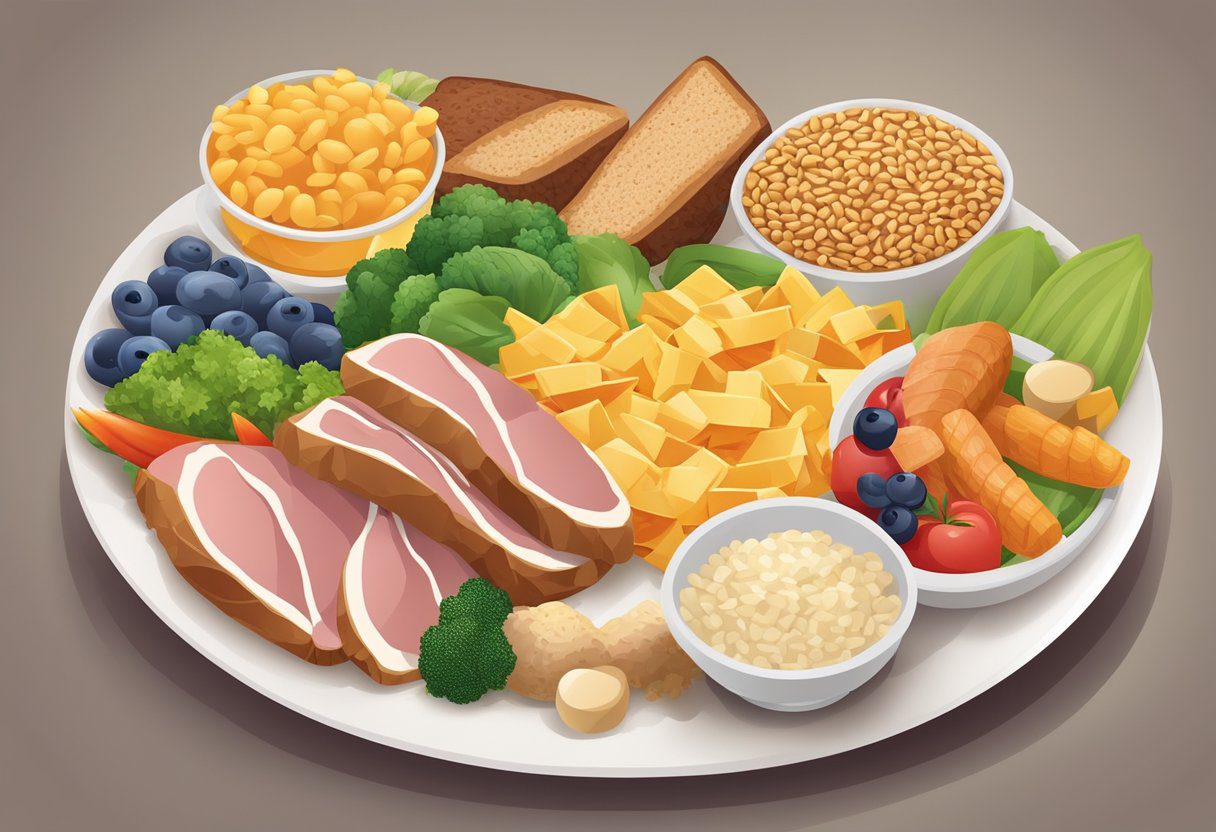
What are the benefits of consuming protein and carbohydrates in the same meal?
Combining protein and carbohydrates in a meal can provide several benefits. The protein can slow down the digestion of carbohydrates, which can result in more stable blood sugar levels. Additionally, consuming protein with carbohydrates can increase satiety and promote feelings of fullness, which can help with weight management.
How does the combination of protein and carbohydrates impact weight loss efforts?
Research has shown that pairing protein with carbohydrates can aid in weight loss efforts. A study published in the International Journal of Obesity and Related Metabolic Disorders found that a food combining diet, which included protein and carbohydrates in the same meal, resulted in greater weight loss compared to a balanced diet.
Can pairing protein with carbohydrates stabilize blood sugar levels?
Yes, pairing protein with carbohydrates can help stabilize blood sugar levels. When carbohydrates are consumed alone, they can cause a rapid increase in blood sugar levels, followed by a quick drop. However, when protein is consumed with carbohydrates, it can slow down the digestion of carbohydrates and prevent spikes and crashes in blood sugar levels after a meal.
Are there specific food combinations to avoid when eating proteins and carbs together?
There are no specific food combinations to avoid when eating proteins and carbs together. However, it is important to choose healthy sources of both protein and carbohydrates. For example, choosing lean protein sources such as chicken, fish, and legumes, and complex carbohydrates such as whole grains, fruits, and vegetables can provide optimal nutrition.
What is the effect of consuming protein and carbs together on ketosis for those following a keto diet?
For those following a keto diet, consuming protein and carbohydrates together can affect ketosis. Consuming too many carbohydrates can kick the body out of ketosis, which can negatively impact weight loss efforts. However, consuming a moderate amount of carbohydrates with protein can still allow the body to stay in ketosis, as long as the total carbohydrate intake is within the recommended range.
How does food combining influence digestion and nutrient absorption?
Food combining can influence digestion and nutrient absorption. For example, consuming fiber-rich foods with protein can slow down digestion and promote feelings of fullness, while consuming high-fat foods with carbohydrates can slow down the absorption of carbohydrates. However, more research is needed to fully understand the impact of food combining on digestion and nutrient absorption.